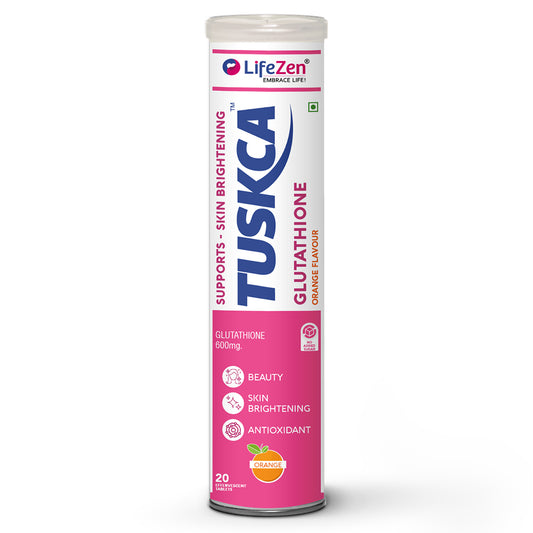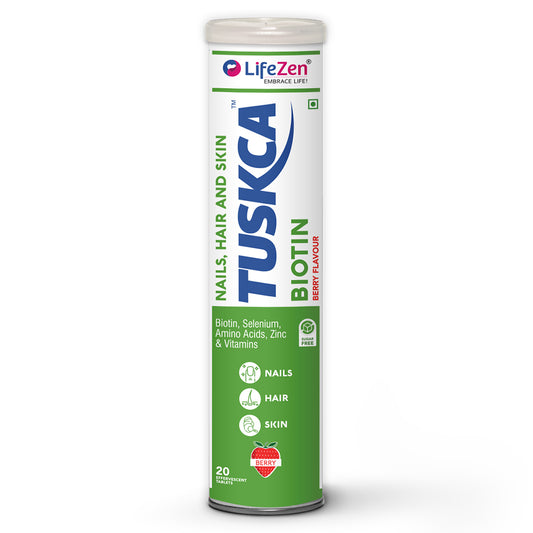Why is Vitamin B12 Important? Need, Deficiency, and Sources
Deficiency of certain vitamins has become common among men and women aged 25 to 55 in the last decade and the two very common deficiency vitamins are vitamin B12 and vitamin D. If vitamin B12 deficiency is left untreated, it can cause many health threats like anemia, fatigue, muscle weakness, intestinal problems, nerve damage, and mood disturbances. Furthermore, it can result in serious health problems. Surprisingly, nutritional deficiencies are seen mostly in urban lifestyles. According to studies, over 650 million people in India are vitamin B12 deficient. So, let's learn more about this B vitamin.
An intro to vitamin B12
Eight B vitamins make up the B complex, and vitamin B12 is one of them. It is a water-soluble vitamin like others. Vitamin B12 contains the mineral cobalt and is hence called cobalamin. The main function of cobalamin in your body is metabolism. Vitamin B12 is crucial as it is essential for the development, myelination, and function of the central nervous system, healthy red blood cell formation, cell metabolism, and DNA synthesis. Never underestimate Vitamin B12, as it is required for the healthy function and development of many organs of the body. Vitamin B12 is required by your brain, nerves, and blood cells.
It is the only vitamin that must be sourced from animal-derived foods, certain dairy products, or supplements. Vitamin B12 is commonly advised for mouth ulcers, cataracts, Alzheimer disease, osteoporosis, fatigue, and many other conditions.
Sources
Plant foods don't contain vitamin B12. Foods such as meat, fish, and dairy contain vitamin B12. You can also get this essential vitamin in fortified breakfast cereals, drinks, and as an oral supplement. Older adults and people with digestive tract conditions are susceptible to vitamin B-12 deficiency due to their poor ability to absorb nutrients.
As per sources, the Recommended Dietary Allowance for Indian men and women ages 14 years and older is 2.4 micrograms (mcg) daily. For pregnant women and women in lactation, the amount increases to 2.6 mcg and 2.8 mcg daily, respectively.
Deficiency
A blood test is the best way to determine if you are vitamin B12 deficient, as the symptoms differ from person to person. By taking the test, you can actually determine the difference and the course of treatment you need to undergo. A regular health checkup is always a good idea, but symptoms can be alarming.
Factors that cause vitamin B12 deficiency
Animal products
People who are vegetarians and vegans are at risk of becoming deficient in vitamin B12, since it is not found in plants but in animal products. As per several studies, vegetarians have low vitamin B blood levels. Hence, vegetarian or vegan diets should include B12-fortified foods, multivitamin supplements, or a B12 supplement in their plans. This is particularly important for pregnant women, as the fetus requires adequate vitamin B12 for neurologic development, and a deficiency can lead to permanent neurological damage.
Poor intrinsic factor
Pernicious anemia, an autoimmune disease, has the potential to destroy gut cells, resulting in the absence of the intrinsic factor, which is required for vitamin B12 absorption. Hence, a vitamin B12 deficiency occurs. Even the use of a high-dose B12 supplement will not solve the problem, as in the absence of the intrinsic factor, even a high dose of vitamin B12 won’t help.
In the case of stomach surgeries and certain diseases, including Crohn’s and celiac disease, that negatively impact the digestive tract, this also increases the risk of deficiency.





